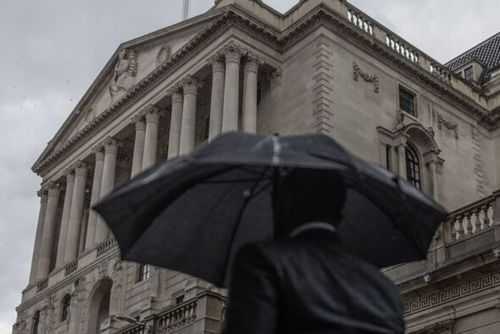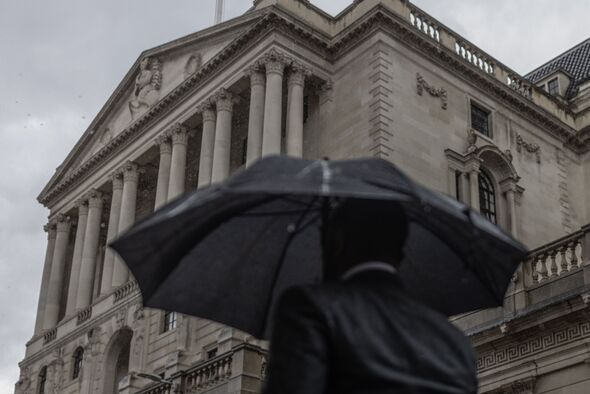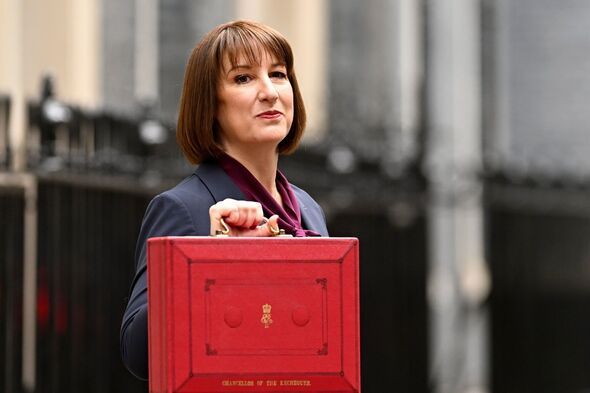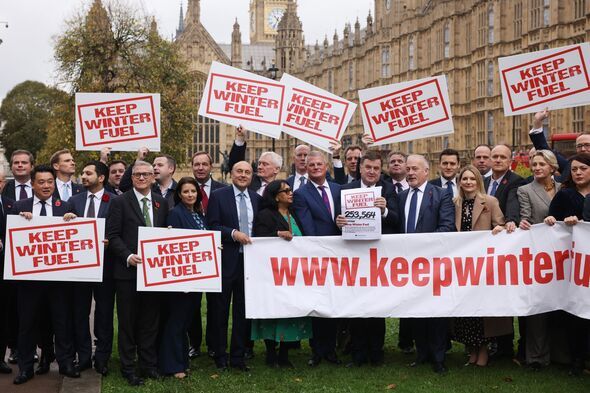

The pound has fallen to its lowest level in nine months as the continue to rise, sparking fears of .
Nigel Green, CEO of , one of the world's largest independent financial advisory organizations warned that the UK's economic turmoil had taken a perilous turn as 10-year government yields on Wednesday climbed as much as 14 basis points to 4.82%, the highest since August 2008.
The plummeting pound comes as the cost of borrowing and the government's interest in its debt rose to its highest level since the 2008 financial crisis when the global economy came close to grinding to a halt.
Green said: "Bond yields are surging, the pound is in freefall, and stewardship of Britain's finances appears to be crumbling under scrutiny. Investors must act decisively before they're caught in the economic crossfire."
The fall has led to economists warning of tax rises and cuts to government spending plans, just months after announced £40 billion of tax rises in her .

Green adds: ""Rachel Reeves' fiscal strategy appears to be nothing more than wishful thinking dressed up as policy.
"Promises of funding massive spending through so-called 'growth' have clearly failed to convince markets. Investors can't afford to sit back and wait for her to deliver on empty rhetoric.
"The numbers don't lie. On Wednesday, 10-year government bond yields soared to 4.82%, the highest since August 2008. Meanwhile, the pound slumped more than 1% against the dollar, falling against all major currencies. UK stocks also tumbled, underscoring a toxic mix of rising debt costs and collapsing market confidence.
"Reeves' fragile £9.9 billion fiscal buffer could be obliterated well before her official fiscal update on March 26. The Chancellor's inability to reassure markets is fanning fears of an economic implosion, with austerity looming as the only option to restore credibility-a brutal throwback to 1976."
This, says the deVere CEO, is starting to look like a perfect storm for investors.
"The parallels with the Liz Truss mini-budget debacle of 2022 are obvious, but the risks now are even graver. The toxic combination of a falling pound and rising borrowing costs is historically rare, and it's a clear signal that the markets have lost faith in this government's ability to manage the UK's debt.

According to several media reports, a spokesperson for the Treasury said: "No one should be under any doubt that meeting the fiscal rules is non-negotiable and the government will have an iron grip on the public finances."
The government is not expected to make any public comment before March's official borrowing forecast which predicts the government's projected public sector borrowing for
Since coming to power in July, the government has reiterated its desire to "balance the books" and has introduced a whole raft of unpopular measures that it believes will address the "£22 billion black hole."
On Tuesday, Sky News reported that public sector budgets could be published even further than expected due to the worsening financial situation.
has criticised the government's approach to fiscal policy, claiming that their budget announcements are making it more expensive for the government to borrow".
He said on X: "We should be building a more resilient economy, not raising taxes to pay for fiscal incompetence," he said in a post on X."
The government borrows money to address the difference between what they spend and what they generate through things such as taxes, with spending usually outstripping income. The difference is known as the deficit.
The deficit is often filled by borrowing in the form of bonds, which are sold to investors with the promise of paying back more than they borrow.
Yields on government bonds, the amount the government pays back for generating income, have risen sharply in recent years and fluctuate frequently.
Prior to the budget, yields sat at 4.04% but have risen significantly since, finishing the day on Wednesday at 4.79%, their highest level since April.